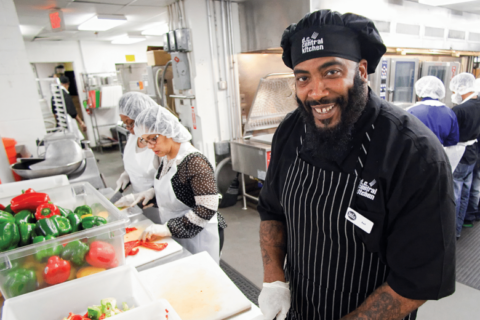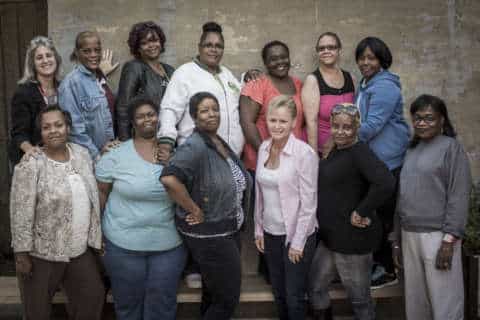WASHINGTON — Drug deals and gun violence were everyday realities for Chris Wilson growing up.
Straddling homes in D.C.’s Lincoln Heights neighborhood and Prince George’s County’s Temple Hills community, Wilson watched his mother fall victim to both domestic abuse and drug abuse. Many of his friends were locked up or killed, including his cousin, who was gunned down for no known reason in an alley. Wilson was even kidnapped at gunpoint in his front yard by men in search of cocaine.
Around the age of 14, Wilson started carrying a gun of his own. When he was 17, he used it, and was later handed life in prison for taking a life — a fate he likened to “a slow death sentence.”
“I refused to believe that this is how my life was going to turn out,” Wilson said.
“I just refused to believe that I would grow old and die in prison.”
Instead of succumbing to his sentence, Wilson wrote out a list of everything he wanted to accomplish in his life and referred to it as his “master plan.” He wanted to get a high school diploma and an associate degree. He wanted to learn to speak Spanish and Italian. He wanted to work out daily, attend therapy and learn to tie a tie.
Most of all, he wanted his sentence reduced.
“I wanted to prove to myself and to everyone else that I was intelligent, that I was a good person, that I could turn my life around,” Wilson said.
“And I wanted to be free. I really just wanted to get out of prison and never come back.”
These days, Wilson is free. He’s the author of the book, “The Master Plan: My Journey From Life in Prison to a Life of Purpose.” He’s also a Baltimore-based entrepreneur, an artist and a motivational speaker — and he did it by way of his master plan.
Every year for a decade while in prison, Wilson sent a progress report to the courts, detailing the books he was reading and the projects on which he was working.
“The other thing is, I talked about what it was like as a young man to watch people die around him and watch his mother be violated and what that felt like,” Wilson said.
“I talked about remorse, and how remorseful I was for what I did. And I talked about how I educated myself when I was behind the fence, and then finally, what I would do if [the judge] was willing to give me a second chance.”
Wilson said the judge risked her career when she granted him that second chance after serving 16 years — and he has no intention of letting her down. Through his social enterprise and contracting company, Wilson creates job opportunities for those “affected by the justice system.” Recently, he started a foundation, and hopes to get more into philanthropy.
“I’m just learning and studying and trying to figure out how I can be more impactful in the world,” said Wilson, who is also an advocate for prison reform, especially concerning juveniles.
“It’s tough for young people because we often don’t know anyone who looks like us, who has become successful and who has been able to do some good things. And so I just want to remind them that it’s possible — that they shouldn’t give up hope and that the first step is to reach out to someone that’s positive for support and surround yourself with people like that.”
His advice for young people growing up in broken communities today?
“Your lives are still salvageable. I was a child when I made a terrible decision; and I paid for it; and I’m remorseful. But I was able to turn my life around,” said Wilson, adding that a master plan can work for anyone — you don’t have to be behind bars to write and work at one.
“It’s a philosophy of how we should live our lives. And if we’re not happy, if we’re complacent with how things are, we should write up a plan and plan some ambitious things and make an impact and help other people do the same. Do that and it could change the world.”







